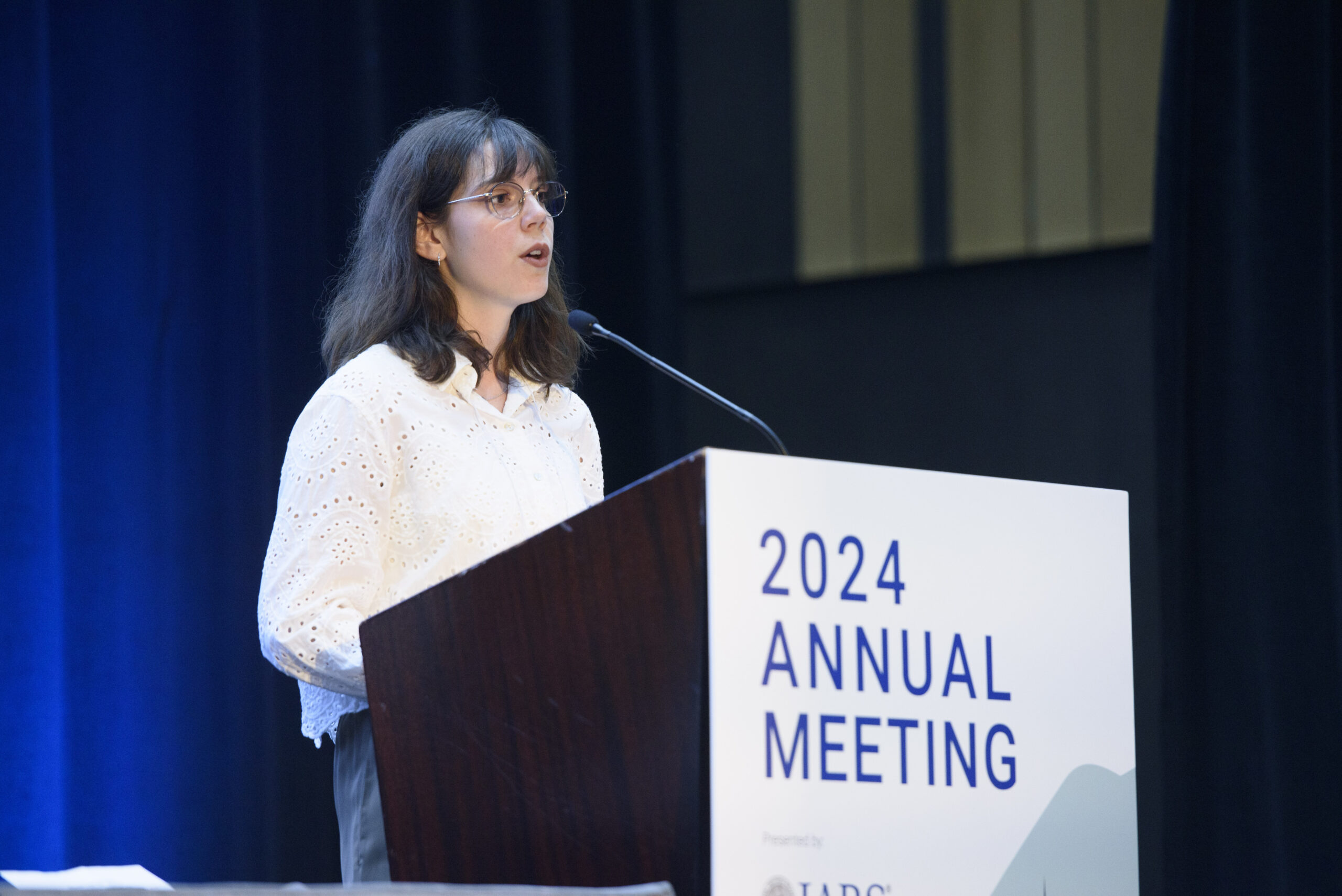Kosaka Top Clinical Research Abstract Recipient Interview: Annika Eyth
Development and Validation of a Score to Predict Intraoperative Red Blood Cell Transfusion
 Annika Eyth
Annika Eyth
Medical Student
Montefiore Medical Center
Bronx, NY
Abstract Presentation:
Kosaka Top Abstract Awards Session, Sunday, May 19, 2024, 7:00 am – 8:30 am PT
When attending surgeries during her medical training, Annika Eyth was fascinated by what occurred behind the anesthesia curtain. As a medical student at Montefiore Medical Center, she gained the opportunity to join Dr. Matthias Eikermann’s team and was excited to learn that anesthesia extended past surgery and aimed to find the best possible outcomes for patients as a whole. With Dr. Eikermann’s research team, Annika jumped into her first experience developing a research project, one focused on developing a blood transfusion prediction model specifically applied to blood management. Already this investigation, “Development and Validation of a Score to Predict Intraoperative Red Blood Cell Transfusion” has led to a reduction in a priority blood set-up in liver transplant surgeries at their institution. In the future, the project is aimed at broadening the spectrum of surgeries in which the routine blood set-up would be redefined. Acknowledging the impressive reach of this research, Annika was recognized as the Kosaka Top Clinical Research Recipient during the Kosaka Abstract Awards Session on Sunday, May 19 at the 2024 Annual Meeting, presented by IARS and SOCCA. In the following interview, she shares her research journey so far, her hopes for the future and how this award will positively impact her promising research career.
1. For this research, I am…
An investigator
2. What drew you to the anesthesiology specialty?
When I attended surgeries during my studies, I was always fascinated by what happened on the anesthesia side of the curtain. When joining Prof. Matthias Eikermann’s team at Montefiore Medical Center, I learned that anesthesia care indeed does not end after the surgery but aims for the best possible long-term outcomes in their patients by focusing on the patient as a whole.
3. What drew you to this area of research?
While there are existing blood transfusion prediction models for a few specialties, those instruments are not currently applied for blood management. Prior to surgery, blood prepare orders for many procedures are often based on subjective criteria such as personal preference of the surgeon or anesthesiologist. We thought there was some room for improvement and that we could create something that makes the decision for blood orders before surgeries easier and more precise.
4. What are the goals you most want to accomplish in your work with this research project?
We have already accomplished a reduction in a priority blood set-up in liver transplant surgeries at our institution. In the future, we would like to broaden the spectrum of surgeries in which we redefine the routine blood set-up. The next step will be cardiac surgery. The new practice will minimize waste, reduce hospital costs, and prevent our patients from added morbidity.
5. What is the potential impact of your research on the field of anesthesia and patient care?
Our score showed a very good performance within an external validation cohort. We think that other institutions can implement TRANSFUSE. The instrument does not require an environment with advanced IT or machine-learning infrastructure. The score does not even need to be recalibrated.
6. What are the benefits of presenting your research during abstract sessions at the IARS Annual Meeting?
I am very happy that I have been able to present this work at the IARS Annual Meeting. We gained an impression on what is done at other institutions and received very valuable feedback and suggestions by an international group of experts on what could be done in the future.
7. How do you feel about receiving the Kosaka Top Abstract Award?
I feel extremely honored and happy to receive the Kosaka Top Abstract Award, this is my first international award. The panel who made the decision was very knowledgeable. Congratulations to all other finalists, all the presented work was truly impressive and will definitely have a great impact!
8. How will this award affect your research and professional trajectory?
The award certainly motivates me as well as the whole team to keep working on the clinical applications of our prediction model. We will soon publish our work to make it easily available for other healthcare networks.
9. Is there anyone else you wish to acknowledge as part of this research team?
Yes, I am extremely grateful for the mentorship and the support of Prof. Matthias Eikermann, who is also the principal investigator of this study. Thank you for giving me so many opportunities and for making all this even possible!
10. Outside of your research, what might someone be surprised to learn about you?
I speak four languages: English, German, French and Italian. Five, if you count Latin, too.
“We have already accomplished a reduction in a priority blood set-up in liver transplant surgeries at our institution. In the future, we would like to broaden the spectrum of surgeries in which we redefine the routine blood set-up. The next step will be cardiac surgery. The new practice will minimize waste, reduce hospital costs, and prevent our patients from added morbidity.”
– Annika Eyth, Kosaka Top Clinical Research Abstract Recipient
International Anesthesia Research Society
